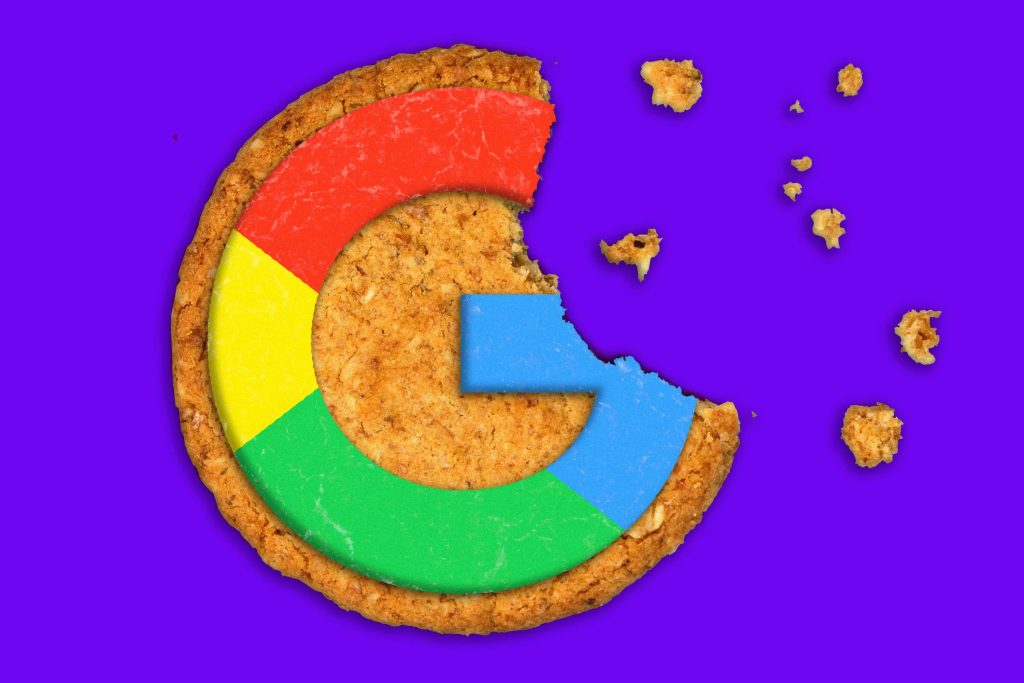Because … well, ad and e-commerce companies are taking a hit from privacy changes by Apple’s operating system privacy updates
BY:
Catherine Nicci
Legal Affairs Analyst / Reporter
PROJECT COUNSEL MEDIA
29 July 2022 – This week Google said it would hold off on its plan to get rid of third-party tracking cookies until at least 2024. But this was no surprise. As we noted during our coverage of the Cannes Lions advertising trade show/conference last month, Google was letting the industry know it was pushing back to 2024.
This is the second time the tech giant has pushed back on the cookie’s demise. Previously, the company had pushed the phaseout to late 2023. Instead, the ad industry, from advertisers to publishers, will have the continued opportunity to formally test Google’s Privacy Sandbox initiative (which we covered here), the tech company’s cookie-less technology solution. As Google explained at Cannes Lions, this was a “deliberate approach” to transitioning from third-party cookies to ensures that web advertising could continue to thrive without relying on cross-site tracking identifiers or covert techniques like fingerprinting.
And as we have noted in previous posts, Google’s privacy protocols have been on the radars of regulators globally after the U.K. antitrust watchdog Competition and Markets Authority launched an investigation into the company’s plans and solutions around a cookie-less future last year due to complaints about its dominance in the digital advertising space.
As we also noted, advertisers that were initially thrown off by Google’s first announcement that cookies would be phased out turned to opportunities to utilize alternate solutions like data clean rooms for ad targeting.
But in a way it might not matter much. At Cannes Lions, LiveRamp (a market leader in analysing the ecosystem of advertising data connectivity platforms) made a presentation that showed regardless of any timeline Google sets, over 45% of the internet, mobile in-app and CTV (connected TV) is already cookie-less. However, companies that are already involved with alternate solutions such as independent web IDs may now face an additional setback as those alternatives aren’t required in the short-term.
Matt Engstrom (an analyst at the ad-tech company Digital Remedy) noted “there are some issues”. At a time when tech giants are facing mounting antitrust scrutiny, he thinks Google’s move to do away with cookies will actually increase its power in the market for digital advertising, where it already plays a dominant role.
This is a situation we have addressed before. No company can match the amount of first-party data sitting in Google’s vaults, plus the seamless technology stack it has created which includes a geodata hub for sharing assets and facilitating community engagement, cloud services, online analytic tools, real-time big data processing, and a nice set of presentation options. “Location intelligence” in the trade. And while location intelligence can be gleaned from social media enriched with locational clues, mined to a high degree, developers have realized that advanced geospatial / geographic information systems are foundational and not an add-on so they need to be baked into operating systems.
Which drives the “lesser folks” absolutely nuts. Because anybody competing with Google (let’s leave Amazon, Apple and Facebook out of this; I said “lesser folks”) faces changes limiting their ability to track users – which will work to Google’s advantage. Because of the sheer volume of data Google knows about people from Search, Android, Chrome, YouTube, etc., etc., etc. which other app developers don’t have access to, new restrictions will make it harder for developers to prove the ads they sell are working. That could cause advertisers to spend even more money with Google versus competing apps because they know Google’s reach. This is a topic we have covered ad nauseam in our GDPR screeds when we noted that the EU regulators simply did not “get” how any of this advertising and digital world worked and does nothing to stop these platforms from upturning the cart in their favor.
And the death of Google cookies? Talk to anybody in the advertising or adtech world and they will tell you: Google had to delay. Ad and e-commerce companies are taking huge hits from the privacy changes by Apple’s operating system privacy updates, which reduces targeting capabilities by limiting advertisers from accessing an iPhone user identifier. Earlier this year, Facebook said the changes will end up costing it $10 billion this year. Apple decided to blow up the digital advertising business, a topic we covered in detail here.
